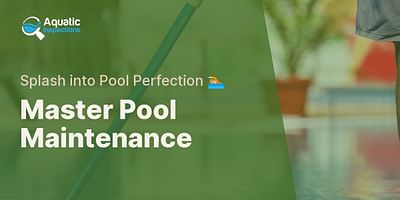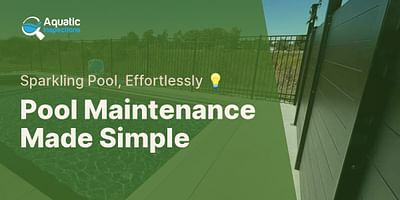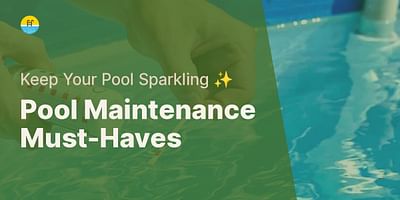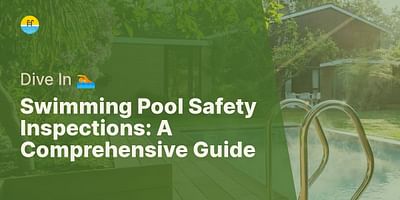Michael 'Mike' Fisher is a pool maintenance expert with a knack for troubleshooting. With over 20 years in the field, Mike has seen it all and fixed it all. He is committed to helping pool owners keep their pools clean and safe.
Draining your pool water is an essential part of pool maintenance, as it helps to keep your pool clean, balanced, and safe for swimming. However, the frequency at which you should drain your pool water depends on several factors, including the size of your pool, the quality of your water, and your pool usage. Let's dive into the details!
First and foremost, it's important to regularly test your pool water to ensure it is properly balanced. This includes monitoring the pH, chlorine levels, alkalinity, and calcium hardness. If any of these levels are consistently out of range, it may be an indication that your pool water needs to be drained and replaced.
In general, most pool experts recommend draining and refilling your pool water every 3 to 5 years. However, this is just a general guideline, and there are a few key indicators that can help you determine if it's time to drain your pool water sooner.
One of the main factors to consider is the total dissolved solids (TDS) level in your pool water. TDS refers to the accumulation of various minerals, chemicals, and contaminants in your pool water over time. As TDS levels increase, it can lead to cloudy water, scaling on pool surfaces, and reduced effectiveness of your pool chemicals. If your TDS level exceeds 1500 parts per million (ppm) above your normal starting point, it may be time to consider draining your pool water.
Another factor to consider is the presence of excessive cyanuric acid (CYA) in your pool water. CYA is a stabilizer commonly used in pool chlorine products to protect the chlorine from being broken down by the sun's UV rays. However, over time, CYA can build up in your pool water and reduce the effectiveness of chlorine. If your CYA level exceeds 100 ppm, it may be necessary to drain and replace your pool water.
Additionally, if you experience a significant pool contamination event, such as a large amount of debris, algae infestation, or a chemical imbalance that cannot be corrected through regular pool maintenance, it is recommended to drain and refill your pool water.
To determine the optimal frequency for draining your pool water, it's best to consult with a pool professional or use a pool water testing kit to regularly monitor the TDS and CYA levels in your pool water. They can provide personalized recommendations based on your specific pool conditions.
Remember, maintaining proper water balance and regular pool maintenance can help extend the lifespan of your pool water and equipment. If you have any further questions or need assistance with pool maintenance, feel free to explore our website, Aquatic Inspections, for comprehensive guides and tips on pool maintenance, inspection, and installation.
Keep your pool clean, safe, and enjoyable with regular pool water maintenance!















